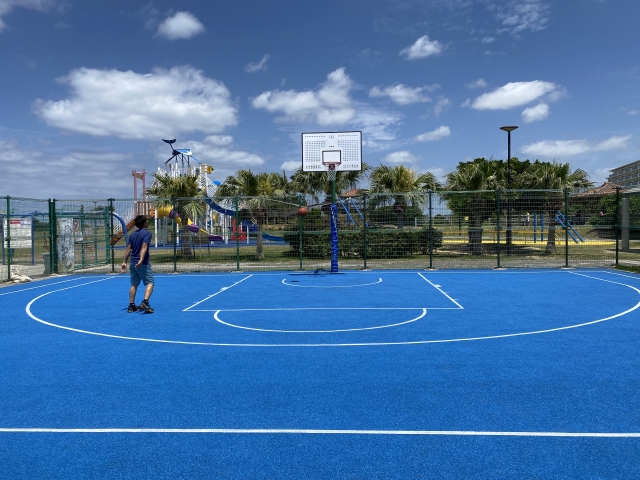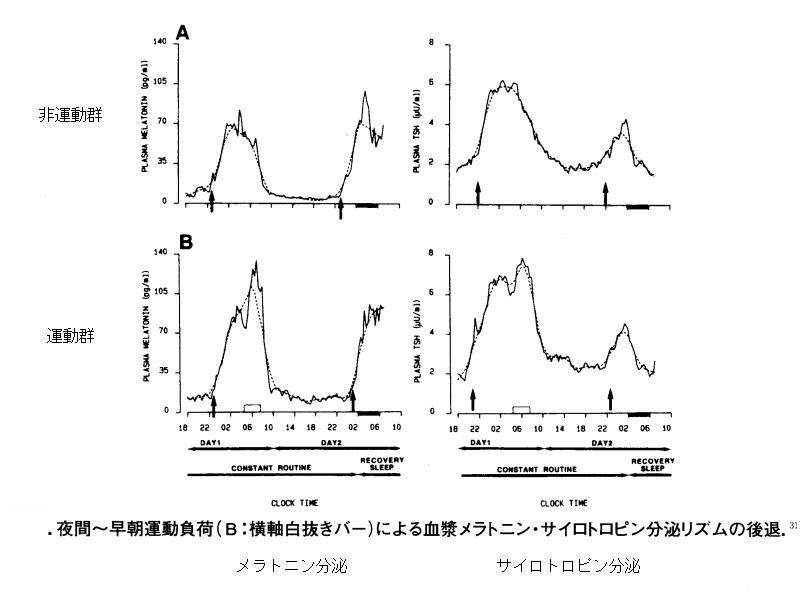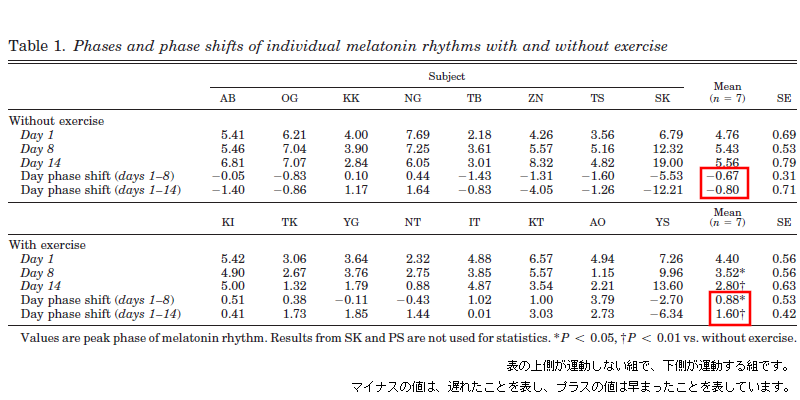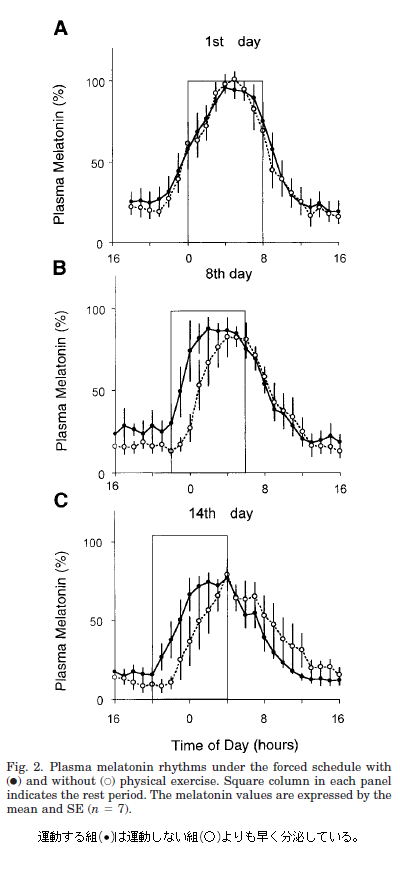Benefits of Exercise

The benefit of exercise in sleep is that it is fatiguing. Sleep is thought to be related to the circadian rhythm mechanism and another homeostatic mechanism that maintains homeostasis. The circadian rhythm is a rhythm that repeats in a person’s body in approximately 24-hour cycles. Body temperature rises and falls and hormone secretion also follow circadian rhythms. When animals are injured, sick, or fatigued, they need to repair and recover. The homeostatic mechanism, or homeostasis mechanism, is to rest and return to the original state. It is expected that exercise causes fatigue, which requires recovery and makes it easier to fall asleep. However, research shows that this is not generally the case.
Late or early exercise slows the rhythm
We cite and refer to the research article 生体機能変化による日内リズムの修飾-特に運動・睡眠と日内リズムの関係-.
Exercise load is believed to have a considerable effect on biological rhythms. A delay in biological rhythms has been reported with exercise in the evening and even later in the day. A delay of one to two hours has also been reported for exercise in the early morning hours from 4:00 to 7:00 a.m.
The following article cites and references the research article Nocturnal exercise phase delays circadian rhythms of melatonin and thyrotropin secretion in normal men.
Three hours of exercise were performed in a room with less than 300lux during the early morning hours of 4:00-7:00 am, when body temperature is at its lowest. The exercise consisted of bicycle ergometer arm cranking for a total of 180 minutes with 5 sets of 15 minutes 60% VO2max, 15 minutes 40% VO2max, and 6 minutes rest. As a result, a time delay of 1 to 2 hours was observed in the onset of melatonin and thyrotropin secretion on the first day of the experiment for the exercise group compared to the non-exercise group. Melatonin is a hormone that begins to be secreted before bedtime and is said to induce sleep. Thyrotropin is a thyroid-stimulating hormone that stimulates the secretion of thyroid hormones. The upper side of the figure shows the non-exercise group and the lower side shows the exercise group. The left side shows melatonin secretion and the right side shows thyrotropin secretion. Comparing melatonin secretion in the non-exercise and exercise groups, the arrow indicating the start of melatonin secretion is behind the exercise group. This means that early morning exercise may shift the time of falling asleep backward, making it more difficult to fall asleep.

Physical exercise during the daytime is recommended as it speeds up the rhythm
So what happens if you exercise during daylight hours?
The following article cites and references the research article Nocturnal exercise phase delays circadian rhythms of melatonin and thyrotropin secretion in normal men.
Subjects were accustomed to sleeping late at night for 7 days prior to the experiment, and then lived in 10 lux dim light conditions for 15 days. The subjects were then divided into two groups, one exercising and one not exercising, with the exercising group starting on the third day.
The exercise consisted of four 15-minute sets of bicycling and cranking exercises, performed in the morning and afternoon, at an intensity of 140 beats/minute of heart rate, with a 15-minute rest period in between. If the bicycling exercise was performed in the morning, the cranking exercise was performed in the afternoon, and if the cranking exercise was performed in the morning, the bicycling exercise was performed in the afternoon. In case you are wondering, a heart rate of 140 is a rather tough exercise; it may feel easy for a 20-year-old, but it will feel much tougher for someone in their 50s or 60s. As a result, peak melatonin secretion was accelerated by 0.88 ± 0.53 hours from day 1 to day 8 and by 1.60 ± 0.42 hours from day 1 to day 14 for the exercising group. On the other hand, the non-exercise group slowed down.

The figure below shows the melatonin secretion rhythm of the exercising and non-exercising groups. In the melatonin secretion rhythm, it can be seen that on day 8 (B in the table), the exercising group (●) secreted melatonin earlier than the non-exercising group (○).

If you want to sleep early, exercise should be done during the day.


コメント